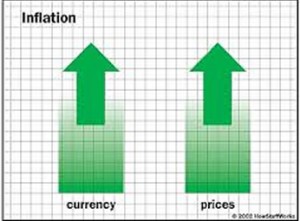Ghanaians asked to be tactical with expenditure as inflation rises
 Mr Courage Boti, an Economist, has advised Ghanaians to be calculated with their expenditure amid rising inflation and its associated high cost of living.
Mr Courage Boti, an Economist, has advised Ghanaians to be calculated with their expenditure amid rising inflation and its associated high cost of living.
The Ghana Statistical Service (GSS) in its latest report observed that the changes in prices of goods and services by households had increased from 15.7 percent in February to 19.4 in March, 2022.
The major contributors to this rise in inflation are transport, food and housing.
Transport and fuel recorded the highest inflation of 27.6 percent, followed by food and housing, 22.4 percent and 21.4 percent respectively.
In an interview with the Ghana News Agency on the implication of the current inflation figure on Ghanaians, Mr Boti explained that situation the country found itself required that people became more cautious with their expenses.
He said: “Unfortunately, the options are limited for government because of resource constraints, and I do not even see government doing anything impactful at this time in terms of reducing taxes.”
“So, this is where everybody needs to be a bit cautious and tactical with their expenditure. You have to do your shopping in bulk, and do low impulse buying, and focus on essentials items,” he added.
Mr Boti also asked Ghanaians to use alternatives for their transport needs.
He said: “If it’s ride-in services that’s affordable go for it. You can also consider pooling resources together and take turns to use someone’s car. For example, if you’re going to work and you have a colleague or two going to the same area and you’re all driving, you can all go with one car.”
The Economist noted that higher inflation meant that the cost of living was becoming higher, especially for public sector and salaried workers who only had increment once a year.
“With inflation rising and rising and general prices going up without a commensurate increase in an income, standard of living will become poorer or will deteriorate and that is fact.”
Mr Boti said Government’s One District-One Factory (1D1F), when well-implemented could solve the supply challenge of inflation in the long term.
He added that: “The good thing is that this year the rains have started quite early, which might mean good news for agriculture productivity,” but it is important for other variables of productivity to be looked at carefully.”
There has been persistent hike in fuel prices since the beginning of this year, with its accompanying increase in transport fares coupled with depreciation of the local currency (the Cedi), resulting in increment of prices of goods and services.
This situation has made many calling on the Government to institute measures that would address the challenges.
Dr, Mahamudu Bawumia, Vice President, had said : “In the midst of the current economic challenges we face, we are putting in place the key pillars for the economic transformation of Ghana.”
He said this at a National Tertiary Students Confederacy (TESCON) forum held on April 7, at Kasoa in the Central Region, while delivering a speech on the state of the Ghanaian economy.
Source: GNA
